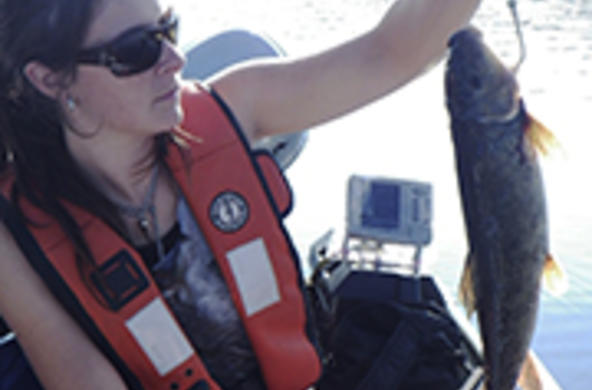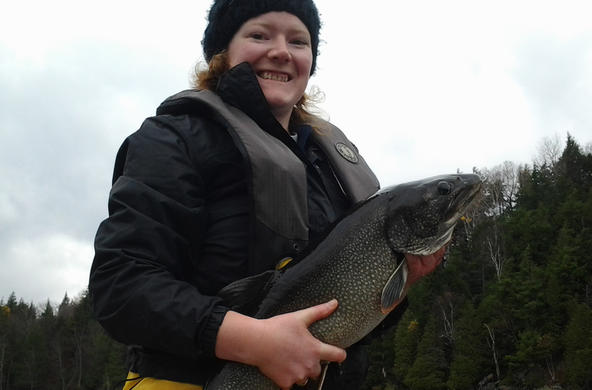- Profile
- Past Projects
- Publications
Dr. Solomon studies the ecology of lakes and other aquatic ecosystems, and of the fish and other organisms that live in them. He is broadly interested in how these systems function, and how we can manage and conserve them. His group emphasizes a collaborative team-based approach using whole-ecosystem experiments, observational studies across space and time, and statistical and simulation modeling.
-

Impacts of Winter Drawdown on Littoral Fishes
The littoral or near-shore zone of a lake can be a small portion of lake area, but it is hugely important to lake food webs. The high productivity and complex structure in this habitat supports abundant invertebrate populations and thereby entire food chains up to the largest fishes in the lake and the people who catch those fishes.
-

Managing Heritage Lake Trout Populations in the Adirondacks
Lake trout are an important recreational fishery species in the northern United States and Canada. Lake trout grow to large sizes, and unfished populations can have many large fish. Yet the slow growth and maturation rates of this species mean that maintaining desirable aspects of population structure can be a challenge for fishery managers.
